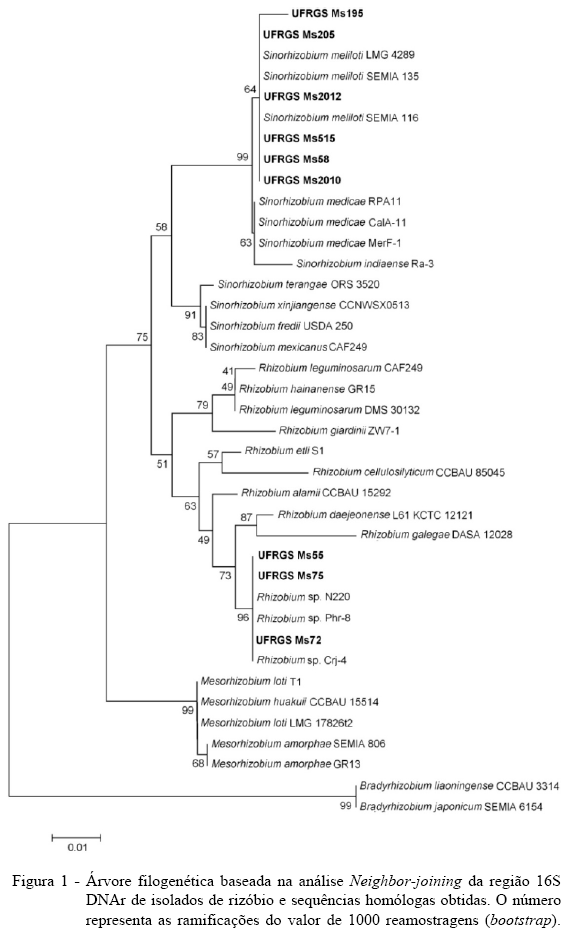The inoculation of leguminous plants with rhizobia is one of the main methods of biotechnological use of microorganisms in order to obtain biological nitrogen fixation in agriculture. However, in recent years it has been attributed to these microorganisms the ability to produce phytohormones, mainly indole acetic acid (IAA), and to promote the growth in grasses. Thus, the objectives of this study were to quantify the indole acetic acid produced by rhizobia from alfalfa and to evaluate the effect of inoculation of these microorganisms on the germination of rice seed and to perform the genetic characterization of these isolates. Nine rhizobia, from nodules of alfalfa, were evaluated for their ability to produce IAA equivalents and for their influence in inoculating these microorganisms on germination and seedling development of rice. Moreover, these rhizobia producers of IAA were identified by the 16S region of DNAr. The equivalent production of indole acetic acid was observed in all tested isolates, with values ranging from 43.04 to 101.26µg mL-1 in culture medium. Regarding the germination of rice seeds, the inoculation with rhizobia accelerated this germination and its growth. Microorganisms UFRGS Ms58, UFRGS Ms515, UFRGS Ms195, UFRGS Ms205, UFRGS Ms2010 and UFRGS 2012 were identified as belonging to the species of Sinorhizobium meliloti. Microorganisms Ms55 UFRGS, UFRGS Ms75 and UFRG Ms72 were identified as belonging to the species of Rhizobium sp.
rhizobacteria; plant growth promotion; indole acetic acid; the genetic characterization; Oriza sativa




